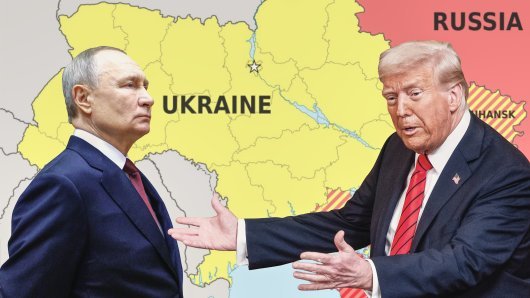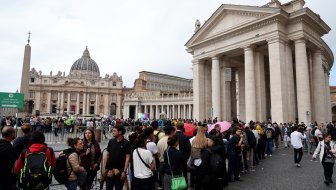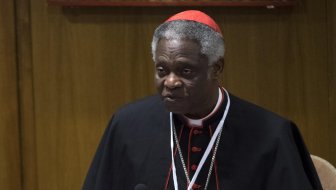Serbian President Boris Tadic held talks in Belgrade on Sunday evening with representatives of Serbs from northern Kosovo on possible solutions to the current situation there and the need to ensure peace and stability on the ground, noting that citizens have a right to protect their legitimate interests in a peaceful way but that they should look for possible and lasting solutions.
Tadic's office said in a statement after the meeting that the Serbian president and the Kosovo Serb delegation were agreed that avoiding violence and any form of extremism was the only way to protect Serb interests.
Tadic called on the Serbs in northern Kosovo not to respond to acts of provocation, calling on the Kosovo Force (KFOR) and the EU rule of law mission (EULEX) to refrain from "unilateral moves".
He reiterated that it was necessary to restore, as soon as possible, the normal provision of supplies to KFOR troops and enable their free movement for that purpose, as well as to make it possible for EULEX members to move freely on roads in the north of Kosovo, on condition they did not transport members of the Kosovo authorities.
Belgrade wants to restore dialogue with Pristina as soon as possible, Tadic said, recalling that that dialogue had resulted in agreement on the design of the Kosovo customs stamp and that the regime on the border crossings of Jarinje and Brnjak had not been discussed.
The meeting between Tadic and the Kosovo Serb delegation was also attended by Serbia's Minister for Kosovo, Goran Bogdanovic, and the head of the Serbian team for dialogue with Kosovo, Borislav Stefanovic.
Protesting against the deployment of Kosovo customs and police officers at Jarinje and Brnjak, on the border with Serbia, Serbs in the north of Kosovo in mid-September set up barricades on roads leading to the two crossings because they do not want Kosovo authorities, which they do not recognise, to control the two border crossings.
Since then, KFOR has been using helicopters to deliver supplies to its troops on the ground, and last Wednesday it started to remove the barricades with the help of EULEX members. Eight KFOR members and more than 20 local civilians were injured in the process.
The situation in northern Kosovo has been mostly calm and tense since then, with KFOR making occasional attempts to remove the roadblocks and meeting with resistance from local Serbs who take turns in guarding the barricades.




































